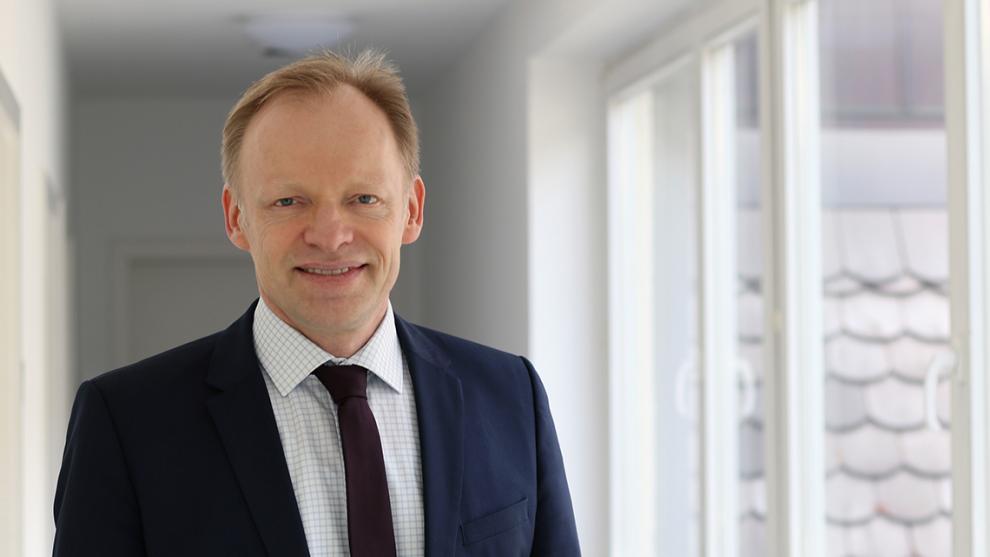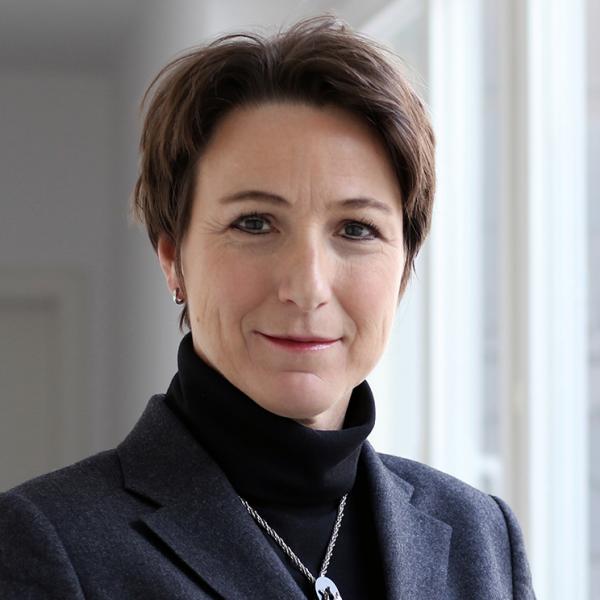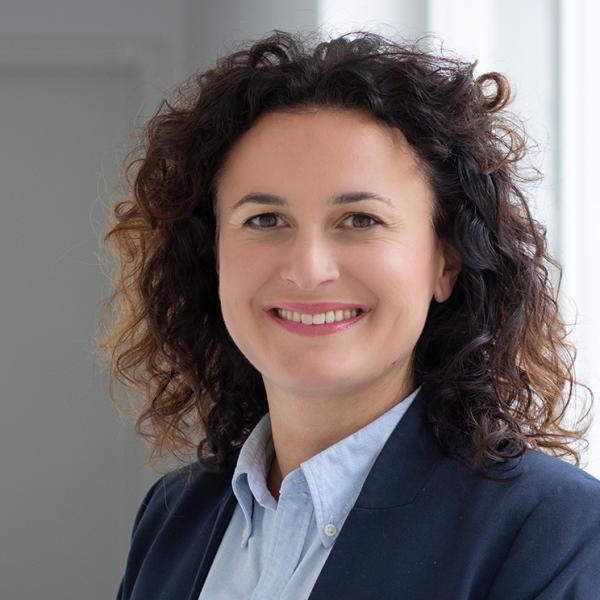ifo Media Center
The ifo Institute invites you to participate in the discussion of interesting economic topics via the Internet. In our ifo Media Center a whole series of remarkable events are available and can be viewed in full length. We also record selected speeches and presentations given by employees or at events and make them available in our Media Center.

Institut ifo/EconPol Europe : Des économistes appellent à une réforme de la politique de recherche de l'UE
Un rapport rédigé par un groupe d'économistes français, allemands et italiens critique la politique d'innovation de l'UE et l'orientation des dépenses en matière de recherche et de développement en Europe et appelle à des changements. « L'UE est en train de perdre la course à l'innovation, renonçant ainsi à son bien-être économique et à son influence réglementaire et géopolitique. Son absence totale dans le groupe des 20 premières entreprises technologiques et des 20 premières start-ups est de mauvais augure. Elle dépense trop peu en R&D et se concentre sur le mid-tech », déclare Jean Tirole, lauréat du prix Nobel et membre de la Toulouse School of Economics. Clemens Fuest, président de l'Ifo, ajoute : « Les investissements dans la recherche européenne se concentrent sur l'industrie automobile et les secteurs similaires, alors que l'Europe est de plus en plus à la traîne dans les secteurs de haute technologie en plein essor, comme l'économie numérique. Le continent est pris au piège de la technologie intermédiaire ».
ifo Institute/EconPol Europe: Economists Call for Reform of EU Research Policy
A report by a group of economists from France, Germany and Italy criticizes the EU’s innovation policy and the direction of spending on research and development in Europe and calls for changes. “The EU is losing the innovation race, thereby giving up on economic well-being and surrendering regulatory and geopolitical influence. Its complete absence in the group of top-20 tech companies and top-20 start-ups is ominous. It spends too little on R&D and focuses on mid-tech,” says Nobel laureate Jean Tirole from the Toulouse School of Economics. ifo President Clemens Fuest adds: “Investment in the EU research is concentrated in the automotive industry and similar sectors, while Europe is being left ever further behind in growing high-tech sectors such as the digital economy. The continent is caught in a mid-tech trap.”
Pour les économistes allemands, l’Allemagne présente une attractivité moyenne
L’attractivité économique actuelle de l’Allemagne pour ses entreprises nationales se situe seulement dans la moyenne européenne. C’est ce qui ressort d’une enquête réalisée par l’Institut ifo et l’Institut de politique économique suisse IWP auprès des économistes de plusieurs pays. Les experts nationaux interrogés évaluent l’attractivité économique de l’Allemagne à 61,3 points sur 100. L’Autriche obtient quant à elle 72,4 points, et la Suisse 72,6 points. « Ce résultat n’est pas brillant pour l’économie allemande. Dans ce pays, 78 % des personnes interrogées estiment notamment que l’Allemagne a perdu en attractivité au cours des dix dernières années. 48 % anticipent même une nouvelle dégradation au cours des dix prochaines années », explique Luisa Dörr, chercheuse à l’Institut ifo.
German Economic Experts Rank Germany Only in the Middle of the Pack
Germany’s current attractiveness as a location for homegrown companies ranks only in the middle among its European peers. This is a finding of an international survey of economic experts conducted by the ifo Institute and the Swiss Economic Policy Institute. When asked to rate Germany’s attractiveness as a business location, the experts there awarded it 61.3 points out of a possible 100. Austria achieved 72.4 points, while Switzerland scored 72.6 points. “This isn’t a terrific result for the German economy. In particular, 78 percent of respondents in Germany think that their country has become less attractive as a business location over the past ten years. A full 48 percent expect the situation to worsen over the next ten years,” says ifo researcher Luisa Dörr.
Les électeurs populistes de droite en faveur du démantèlement de l’État social
Les électeurs des partis populistes de droite s’expriment plus pour la destruction de l’État-providence que les autres électeurs afin de pouvoir faire face à la concurrence d’autres pays. C’est ce que révèle une en-quête menée auprès de 12 000 électeurs en Allemagne, en France, en Espagne et au Royaume-Uni. « Le spectre du populisme de droite conçoit l’État social comme un moyen de redistribution des ressources vers les immigrés », explique Marcel Thum, directeur de l’établissement ifo de Dresde.
ifo Institute / EconPol Europe: Parenthood Increases Inequality between Women and Men in Germany
Inequality in the labor market between men and women in Germany is at its greatest when there are children involved, finds an international research group that has examined the development of inequality in 17 countries in Europe and North America over the past 50 years. Among 30-year-olds, mothers earn on average 70 to 80% less than fathers. For childless people of the same age, the difference is much smaller and has fallen to less than 5%.
Business Climate in the German Automotive Industry on the Upswing
The business climate in Germany’s automotive industry brightened in March. The indicator rose to -5.8 points, up from -9.9 points* in February. “The German automotive industry seems to have finally emerged from its economic low in the second half of 2023 and is looking to the future with more confidence,” says Anita Wölfl, a specialist at the ifo Center for Industrial Organization and New Technologies.
Inflation Continues to Decline in Germany
ifo price expectations in Germany fell to 14.3 points in March, down from 15.0 points in February. This is their lowest level since March 2021. “Inflation is still on the decline and should fall below 2% this summer. From a German perspective, there’s no reason why the ECB shouldn’t cut interest rates soon,” says Timo Wollmershäuser, Head of Forecasts at ifo.
Business Climate in German Retail Improves Markedly Before Easter
The ifo Business Climate in retail brightened noticeably in March. The indicator for assessments of the current business situation rose to -7.3 points, up from -18.1 points* in February. There was a clear improvement in business expectations, too. “The pessimism that has been such a feature of recent times is receding. Business in the run-up to Easter has apparently brought a ray of hope for many retailers,” says ifo expert Patrick Höppner.
ifo Business Climate Eastern Germany Blossoms with the Start of Spring (March 2024)
The ifo Business Climate Index Eastern Germany rose considerably in March. The barometer of business sentiment for the regional economy in eastern Germany climbed to 90.0 points, up from 88.6 points in February. The eastern German companies surveyed provided assessments of their business situation that were somewhat better than the previous month, and they also raised their business expectations slightly.
Headwinds from Germany and Abroad: Institutes Revise Forecast Significantly Downwards
According to Germany’s five leading economic research institutes, the country’s economy shows cyclical and structural weaknesses. In their spring report, they revised their GDP forecast for the current year significantly downward to 0.1%. In the recent fall report, the figure was still 1.3%. Expectations for the coming year are almost unchanged at 1.4% (previously 1.5%). However, the level of economic activity will then be over 30 billion euros lower due to the current weak phase.
Eastern Germany Hit Harder by the Skills Shortage
Companies in eastern Germany are more affected by the shortage of skilled workers than in the rest of the country. This is confirmed by new results from the ifo Business Survey of 9,000 companies throughout Germany, 1,700 of which are based in former East Germany. In the first quarter of 2024, 42.1% of companies in eastern Germany stated that their business was affected by a lack of skilled personnel; the figure for Germany as a whole was 36.3%.
ifo Employment Barometer Rises (March 2024)
Companies in Germany are again looking to hire more staff. The ifo Employment Barometer rose to 96.3 points in March, up from 94.9 points in February. “Companies are currently more willing to hire because they are better able to assess the economic conditions. Skilled workers continue to be in demand,” says Klaus Wohlrabe, Head of Surveys at ifo.
Institut ifo : nette progression des prévisions en matière d’exportations
Le moral des exportateurs allemands s'est considérablement amélioré. L’indice ifo des prévisions en matière d’exportations est passé de – 7,0 points en février à – 1,4 point en mars. « Le commerce mondial devrait repartir à la hausse au cours des prochains mois », déclare Klaus Wohlrabe, directeur des enquêtes conjoncturelles de l'Institut ifo. « Les exportateurs allemands espèrent pouvoir en profiter. »
ifo Export Expectations Rise Considerably (March 2024)
Sentiment in the German export industry is markedly brighter. The ifo Export Expectations rose to -1.4 points in March, up from -7.0 points in February. “World trade ought to pick up in the months ahead,” says Klaus Wohlrabe, Head of Surveys at ifo, “and German exporters hope to benefit from this.”
L’indice ifo du climat des affaires à nouveau en hausse
Le moral des entreprises s'est nettement amélioré, comme le montre la progression de l'indice ifo du climat des affaires, de 85,7 points en février à 87,8 points[1] en mars. Les prévisions des entreprises s'avèrent beaucoup moins pessimistes. L'évaluation de la situation actuelle affiche elle aussi une amélioration. Une lueur d'espoir se profile à l’horizon pour l’économie allemande.
ifo Business Climate Index rises (March 2024)
Sentiment in German companies has improved noticeably. The ifo Business Climate Index rose to 87.8 points in March, up from 85.7 points in February. In particular, companies’ expectations turned much less pessimistic. Assessments of the current business situation also improved. The German economy glimpses light on the horizon.
ifo President Fuest: Europe Must Invest in Its Own Strength
Europeans should do more for their own economic strength. This is ifo President Clemens Fuest’s recommendation in view of the elections in Europe and the United States. “If Europe’s security and prosperity depend primarily on the outcome of US presidential elections, then we have made some fundamental mistakes,” he writes in a new ifo Viewpoint. Achieving greater strength should be the central theme of the European elections in June 2024 and the policy of the next European Commission. This includes defending the rules-based international order with partners wherever possible.
Germany’s Shortage of Skilled Workers Eases Slightly
The shortage of skilled workers among companies in Germany has eased somewhat. According to the survey, 36.3% of firms are currently suffering from a shortage of qualified workers, down from 38.7% in October 2023. A year ago, it was 43.6%. “The weakening economy is reducing demand for skilled workers in the short term,” says ifo expert Klaus Wohlrabe, “but the fundamental problem is here to stay.”
Working from Home Could Reduce Office Space Requirements in Germany by 12%
Working from home reduces the need for office space in Germany. This is the result of a new study conducted by the ifo Institute together with real estate consultancy Colliers for the major cities of Berlin, Hamburg, Munich, Cologne, Frankfurt am Main, Stuttgart, and Düsseldorf. “Regular working from home has become the new normal for around 25% of employees and 69% of companies. This is leading to a decline in demand for office space, particularly among large companies and in industries where working from home is more commonplace. By 2030, it’s likely that the need for office space will have decreased by 12%. This would correspond to a drop in demand of around 11.5 million square meters in the seven major cities. The new world of work is triggering structural change in the office market,” says ifo researcher Simon Krause, coauthor of the study.




